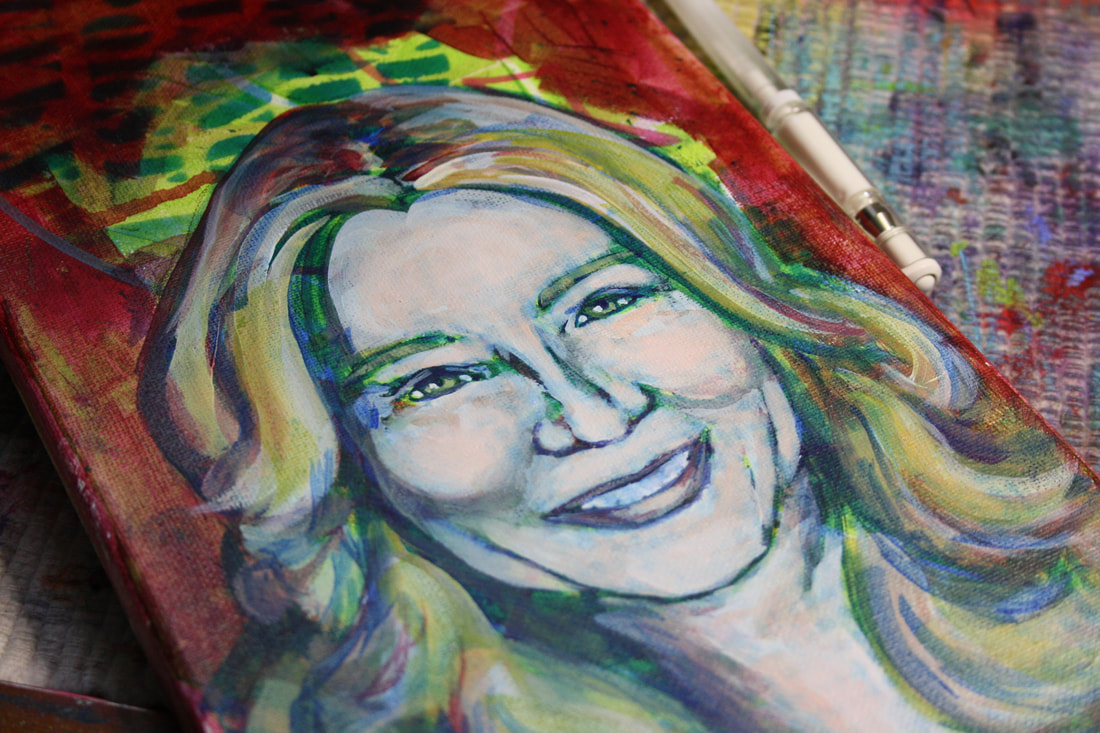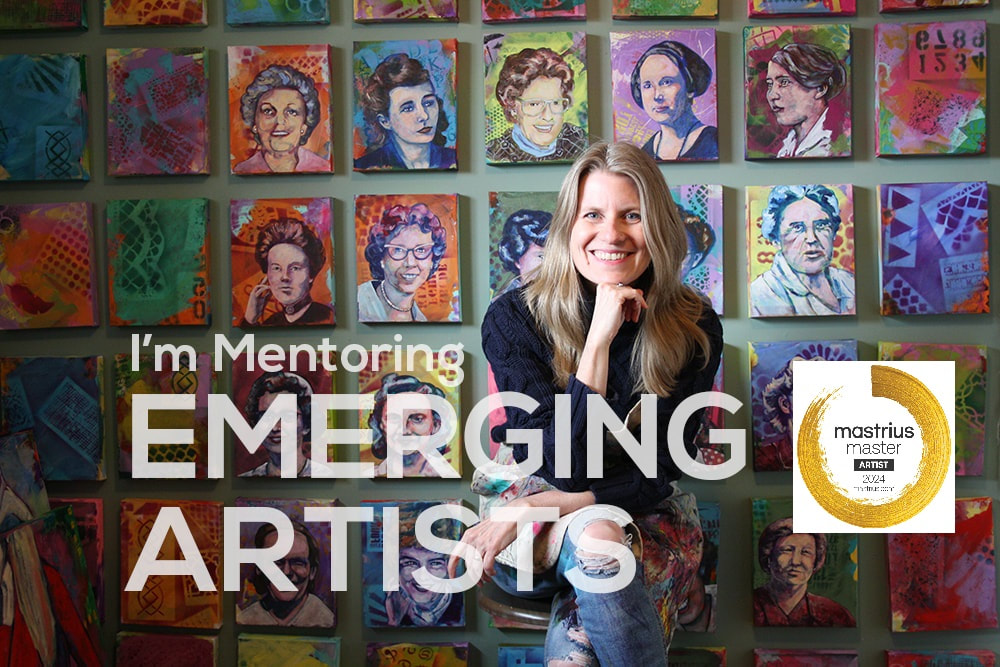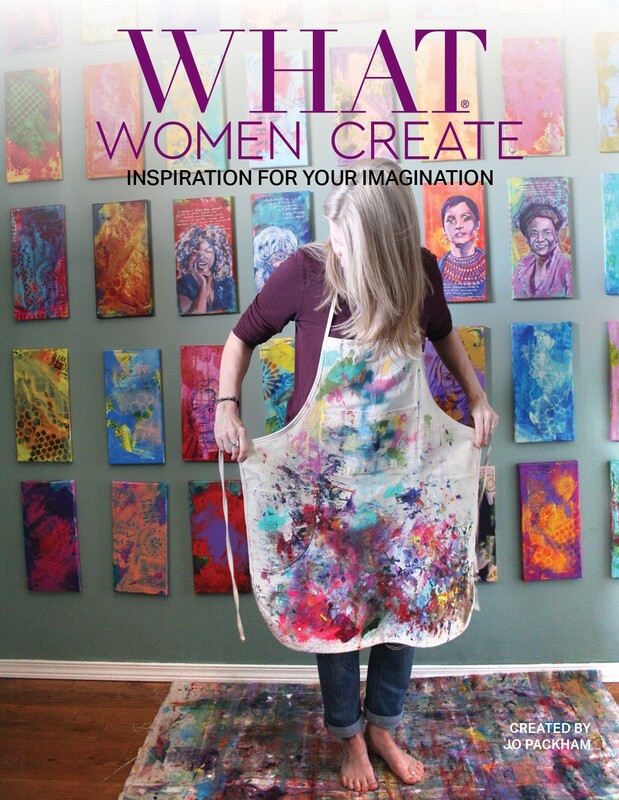My parents lived, breathed, ate and slept theatre. Emotions were right on the surface. Growing up, the unreal had as much importance as the real. Q: Was it just natural to become an actor or did you want to do something else to begin with?
MF: No, I think I always wanted – whatever illusions I had about doing something else, my love and heart was always definitely in this industry. I’d come by insanity, honestly. Q: Your characters in Reign and Wynonna Earp are very different. What did you like best about playing each character? MF: I loved playing Catherine in Reign because it got to develop over a while and she was multi-faceted too. She was obviously very powerful and strong and a flawed personality which is always very fun to play. I always say Catherine was somebody who didn’t have permission to own her power because she was a female. She wasn’t born with a title and her head was literally on and off the chopping block. Her job was to breed and produce further heirs. She was fiercely loyal to her sons, but also really capable of ruling, but had to do it through other voices. I found that consequently made her someone who we could perceive as manipulative but it was because she didn’t have the right of ownership to her power. I loved playing her and in our show there was room for humour which I think was critical and we played with that. Michelle Earp is someone who is definitely fierce as well. There would be a link in the fierce department. She’s fiery and loyal and the girls will learn why and what that means. What’s really fun about Wynonna Earp is there is a lot of humour in it as well which I love. I love the comedy. Q: Now, you starred as Anne of Green Gables, so what’s it like for you to be part of a huge cultural Canadian legacy in literature and entertainment with Anne of Green Gables. There are still shows on right now like the new Anne. What’s that mean to you? MF: I feel really blessed and lucky. As a young person I got to play such a phenomenal character, first of all, just a beautifully constructed character. I got to play someone who was number one, meaning as a young female her storyline, her thoughts and feelings, her desires were the spine of the story. She wasn’t an appendage on someone else’s story. I think that was why from the moment the book was first written and created at a time where we can see, Lucy Maud Montgomery’s book was rejected a number of times by different publishers. First of all female authors were not really supported or considered which led for her to have an incredible frustration and complex character with her own issues and a richness which she poured into this character which all of a sudden gave breath and life into the fact that a young girl could have these dreams and aspirations and the right to an education and to have a voice. This was being written 100 something years ago! We’ve come so far and yet have so far to come. I think that’s why Anne still resonates so strongly for people as a voice of someone who was also considered an outsider. She was not someone who had any value. She came from no money and she was even worse in the eyes of society because she was an orphan. She was considered trash literally, that’s one of the things people call her. Yet she rises above that because of her mind, her love of language, love of learning. That’s why globally Anne, no matter where I’ve gone in the world, people have seen that and meant a lot. People first read those books and then their grandmothers, mothers, aunts and whoever else would pass them on to people. Then this show, this particular iteration we had done, came around and we were very, very true in that first 4-hour miniseries in particular to the very methodical journey of the character and what the author had done. It meant a lot to people because young women could say, ‘Oh I see me. I see someone who people think isn’t beautiful. Look at how smart I can be. I have the right to a voice’. I gave you a long answer, but that’s why it’s lasted. It’s not just about a cute girl on an island and the flowers are pretty. That’s not what Anne of Green Gables is about. Q: To that point of what you said about fierce characters, if a girl wants to become a fierce character to by imitation, what kind of guidelines should you give her as an actor? MF: I think finding one’s voice is always a lifelong journey. It’s a struggle and we want acceptance, of course we do. Sometimes actually really being true to ourselves can feel lonely, and yet that will ultimately be the thing that will be the most authentic. I think it really comes back to authenticity, and ultimately it’s hard because of this world that we live in, and for young people, I really, really feel for them because you’re being bombarded with images of things or ‘I should be there’ or ‘why don’t people like me enough, why didn’t I get invited to this, why aren’t my numbers high enough, why are you ghosting me’. All of this stuff is pressure, you know? I think we need to be okay to sit in our own skins and sit with ourselves a little bit. And sometimes that may feel lonely, but that’s actually where we’re really going to find each other, if that makes sense. ~ Britany Murphy Comments are closed.
|
|




